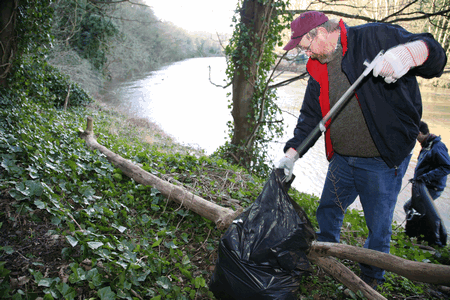Bill Bryson launches anti-fly-tipping campaign

Bill Bryson, president of the Campaign to Protect Rural England, threw his weight this week behind the organisation’s bid to turn back the tide of rubbish spilling across the countryside.
Called Stop the Drop, the CPRE campaign aims to provide practical ways in which farmers and other rural dwellers can fight back against what many see as an unstoppable modern scourge.
Mr Bryson, best known for his books on travel, is alarmed at the steady increase in both litter and fly-tipping in rural areas. Some 25m tonnes of litter is now dropped each year in the UK, a five-fold increase since the 1960s. And local authorities dealt with 2.6m fly-tipping incidents in 2006/07, 5% up on the previous year.

However the rate of fly-tipping prosecutions is very low – just 1700 people in 2006/07 – and taxpayers footed a bill of £73m to pay for the clean-up.
“It’s clear that the system isn’t working,” he said. “This campaign is about asking everyone to open their eyes. This beautiful countryside is filling up with litter.”
What’s the answer? Mr Bryson believes putting pressure on local authorities is a good starting point. “Local authorities treat litter clearance as a marginal part of the services they offer. We need to let the people in authority know it’s important to us.”

Local authorities also have a statutory duty to clear rubbish from roadsides and other public areas within a specified period, he added.
Tougher action on fly-tippers is needed too. “We’re told they’re hard to catch but I find that hard to believe. It must be quite a risk to take a van out after dark to dump waste.”
He also urges those who live in country areas to get involved with local clean-up drives. “We had one in the village in Norfolk where I live a couple of weeks ago. It worked brilliantly and we’ve said we must do it again. Everyone should do it.”
* The CPRE can provide advice and posters on how to organise a village clean-up day, example letters to send to your local authority and a guide to which authority to deal with. More help is available on the CPRE website.

